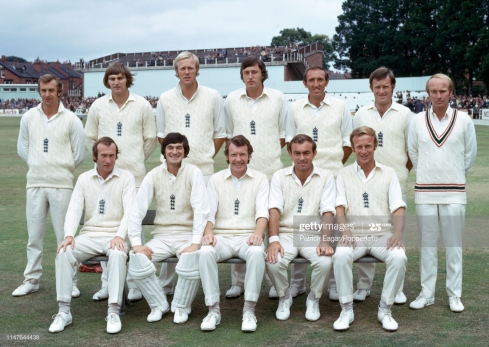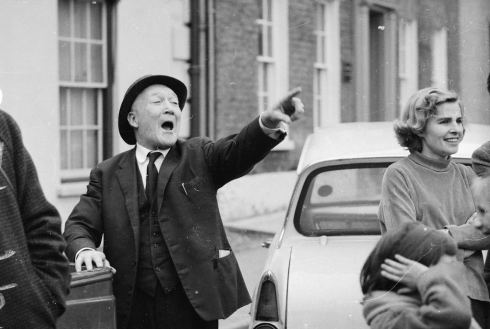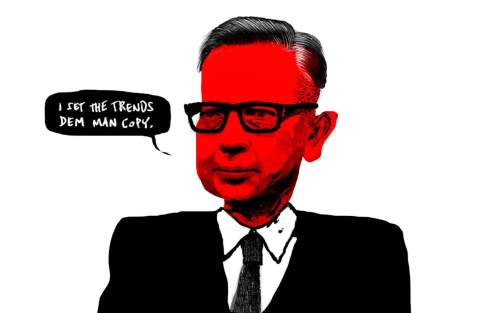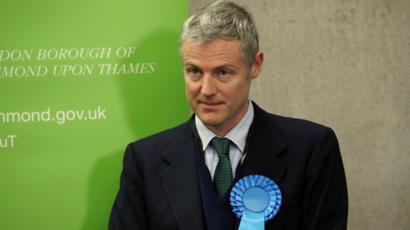Sherry Arnstein outlined her model of citizen participation, known as the Ladder of Participation in 1969 (Arnstein, 1969). Arnstein notes that at a conceptual level, participation is acknowledged as a universal good. Yet the practical application of it varies. For Arnstein the role of citizen participation is equal to the use of citizen power and a fundamental balance of the US constitution (Arnstein, 1969, p. 216).
The ladder is a typology of 8 levels of participation, each level is associated with one of three outcomes or end products. The bottom rungs are Manipulation and Therapy which link to Nonparticipation. These are extremely negative and controlled rungs. Further up we enter Degrees of Tokenism reflected by the rungs of Informing, Consultation and Planning. These rungs give some role to citizens but decision-making and the ability to make changes remains firmly in the hands of the bureaucracy. The top two rungs produce a degree of citizen power. These are Delegated power and Citizen control.
When we look in more detail at the more meaningful rungs, Arnstein sees informing as a transactional relationship. And a one-way transaction at that. Citizens have little ability to negotiate or get excluded by technical answers and information. Consultation for Arnstein is meaningless without other modes of participation complimenting it. There is often a disconnect between the consulters and the consulted. Placation is where the citizens have some degree of representation, though it is on the terms of those with power e.g hand picking and the advice, information and priority setting still sits in the hands of others.
At the higher end of the ladder we have Partnership. This is where citizens and power holders can negotiate and decide, probably through a formal committee which has accountability. Above this we have Delegated Power. Here we would see citizens have the dominant role in decision-making, maybe even delivering services through contracts. Finally, there is Citizens Control. For Arnstein this represent the citizens being in control. Managing the external relationships and that there is no intermediate between them and the funds (Arnstein, 1969, pp. 216-223).
One of the major flaws in the Arnstein model is that it takes as a priori fact that public participation is a good, without any assessment of how it provides value (Ianniello, Iacuzzi, Fedele, & Brusati, 2019, pp. 21-22). Participation and engagement can be rewarding and beneficial, but they can also be frustrating, time consuming and often of no recognisable value whatsoever. This has often been the case with community engagement in Local alcohol issues (Corlett, 2017). Further it doesn’t reflect that as people became busier and pressure rose on their time and financial security, they are less inclined to be part of civic society. They are also bombarded with a myriad of media and challenges to their day as the way in which we live and communicate has continued to evolve (Putnam, 2001).
Arnsteins model should not be seen as a ladder that is climbed or that is consecutive and in some ways is a misleading analogy (Arnstein, 1969, p. 218). Indeed, it is possible for many citizens to have one foot one rung, a hand on another and maybe even a finger on different rung entirely.
One criticism of participation is that those who do participate are often not representative of the wider community, and within those groups that may be represented are their own participation struggles and concerns.
One model that builds on the Arnstein Ladder is the idea of “Liquid Democracy “(Rashbrooke, 2018, p. 266). This is seen as a complementary process alongside current democratic institutions. In this model politicians and officials become facilitators rather than gatekeepers. Elected representatives still retain the decision-making power, but they are guided by citizens assemblies, reflecting the citizens role as a part of society rather than a consumer of services. Liquid democracy gives citizens a role in between election cycles. The creation of forums would allow for greater accountability and scrutiny. Critics of this concept feel that it would be dominated by those who can express and articulate themselves in a more lucid and compelling way. This could find the forums dominated by the well educated and confident. The construction of the forums needs to reflect society in a meaningful way and maybe even over represent those whose voice will struggle to be heard. Attendees receive training and support and aim to make consensual decisions and recommendations. There are successful examples of this working including the Toronto Planning Panel, a participatory budgeting scheme in Brazil that formed a public view on council investment and Taiwan’s online VTaiwan process (Rashbrooke, 2018, pp. 261-279). This concept is similar to the idea that citizens see effective consultation as two-way and that they consult early in the process when decisions can be altered rather than on agreed outcomes (Berner, Amos, & Morse, 2011, pp. 156-158).
Another engagement concept is using referendum. New Zealand has a long history of undertaking referenda in the local government context. These have often been for issues of public contention rather than regular decision-making. Some examples include the issue of water fluoridation or constructing a sports stadium (Cousins, 2002, pp. 203-205) . The Local Electoral Act provides for mandatory polls on the creation of Maori wards and provisions for referenda on changes to the electoral system. In some ways referenda are used when consultation may have failed or as a mechanism of the last resort. New Zealand has historically used these for contentious issues and come from a negative desire to be rid of an issue rather than a positive one of engagement (Cousins, 2002, pp. 206-207).
A current example of putting an issue out to the whole community to vote on is taking place in Queenstown. Here the District Council are asking all residents if they support a visitor’s levy. The Council has no powers to introduce one and is using this as further leverage with central government (Otago Daily Times, 2019). Referenda though are very binary tools and citizens often have little input in shaping the question. They do though provide for a district wide input between elections.
So why is there resistance to participation and engagement? For some this is viewed as an area of contention between elected representatives, officials and the community. Staff in one survey felt that the public are not all capable of understanding technical details, and it requires “effective citizens “, while elected representatives see the potential for these engagements to be adversarial and a threat to their own legitimacy (Berner et al., 2011). They see citizens as having narrow interests and prefer formal processes to more open engagement mechanisms (Berner et al., 2011, p. 143).
Participation is still seen as “hard” in local government. With the growing interest in “anti-politics” or lack of interest and commitment from the public to traditional processes many councils will simply wonder “why bother?” So many will see the value of consultation as being of little value or just talking to the same people on every issue. The existing statutory provisions on consultation mean that Councils can be selective and, in a world, where resources are scare must balance the need to be cost effective and still meet its legal requirements. Councils will often take a limited view on what they are consulting on and when to undertake this (Cheyne, 2016, pp. 114-118).
So, do the active rungs of the ladder still provide for accurate views on local government participation? We can see Informing as being the process of newsletters and resident communications. Consultation is the formal processes around plans, by-laws and other developments. Placation might be consultation on Annual Plan where a Council might restrict its rates rise. This might be seen as a win for the community, but the agenda of rates increases was the elected representatives and officials. Partnership would cover areas like co-governance committees. Delegated powers while not formally in place were a close alignment to the idea of local boards in Auckland. Finally, Citizens control. This is perhaps a panacea and not something in place, is it something to strive for? Certainly. However, there is always a balancing act and for many issues the mechanism of electing engaged and concerned representatives is still an effective model.
References
Arnstein, S. (1969). A ladder of citizen participation. JAIP, 35(4), 216-224.
Berner, M., Amos, J., & Morse, R. (2011). WHAT CONSTITUTES EFFECTIVE CITIZEN PARTICIPATION IN LOCAL GOVERNMENT? VIEWS FROM CITY STAKEHOLDERS. Public Administration Quarterly, 35(1), 128-163.
Cheyne, C. (2016). Public Participation and Community Engagement : The Changing Nature of Local Political Participation. In C. C. Jean Drage (Ed.), Local Government in New Zealand Challenges and Choices (pp. 106-119). Auckland Dunmore Press Limited
Corlett, E. (2017, 21 July ). Liquor licence freeze could be undermined by opening hours. Retrieved from https://www.radionz.co.nz/news/national/335575/liquor-licence-freeze-could-be-undermined-by-opening-hours
Cousins, M. (2002). Capturing the Citizen’s Voice: The Use of Referenda by New Zealand Local Government. In J. Drage (Ed.), Empowering communities? : representation and participation in New Zealand’s local government (pp. 187-210). Wellington [N.Z.]: Wellington N.Z. : Victoria University Press.
Ianniello, M., Iacuzzi, S., Fedele, P., & Brusati, L. (2019). Obstacles and solutions on the ladder of citizen participation: a systematic review. Public Management Review, 21(1), 21-46. doi:10.1080/14719037.2018.1438499
Otago Daily Times. (2019, 7 March ). Referendum on Queenstown visitor levy announced. Retrieved from https://www.odt.co.nz/regions/queenstown/referendum-queenstown-visitor-levy-announced
Putnam, R. D. (2001). Bowling alone : the collapse and revival of American community (1st Touchstone ed.. ed.). New York: New York : Simon & Schuster.
Rashbrooke, M. (2018). Government for the public good : the surprising science of large-scale collective action Wellington: Wellington : Bridget Williams Books.










